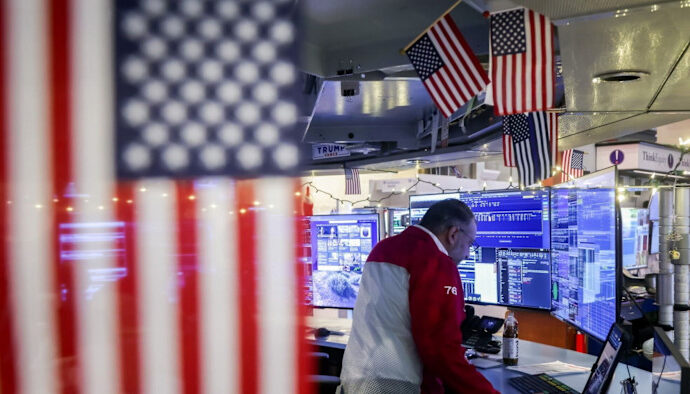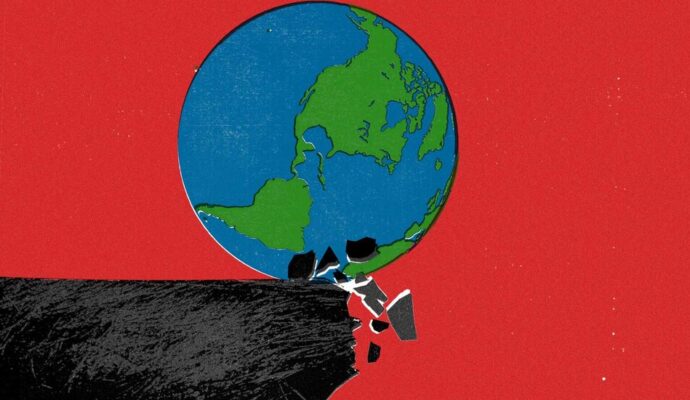Unlock the Editor’s Digest for free
Roula Khalaf, Editor of the FT, selects her favourite stories in this weekly newsletter.
Next week’s EU-China summit will be in Beijing because Chinese President Xi Jinping wouldn’t come to Brussels. To scornful American security types, the shift signifies more European kowtowing to China.
The summit won’t produce the “grand bargain” with China that some Europeans fantasise about. Still, it’s momentous. Europeans find themselves surrounded by three hostile powers — Russia, the US and China — one of which they barely understand. China is never a priority for the EU, often getting bumped off meeting agendas, Nadine Godehardt of the German Institute for International and Security Affairs told last week’s Asia Society France conference in Paris. Europeans haven’t yet decided how to handle China. Washington has anointed it chief enemy, but for Europe that position is filled by Russia. Indeed, the lack of a common enemy has helped alienate Europeans from Americans.
“We don’t really know what China wants with Europe,” says Jean-François Huchet of France’s National Institute for Oriental Languages and Civilisations. I’ve been listening to experts, especially the west’s tiny coterie of Chinese-speaking scholars, to understand what China wants and how Europe should respond.
The relationship is built on distrust. China and Europe lack shared values. Previously, as in the case of China’s trampling of its Uyghur Muslim minority, this barely affected Europe. But in recent years, the Chinese threat has become direct. China backs Putin’s war in Ukraine. It spies in Europe. Its tech has surpassed Europe’s. And Europeans have realised that China attacking Taiwan wouldn’t be just a distant atrocity. It would hurt them. Up to half the world’s container ships use the Taiwan Strait, notes Simona Grano of Zurich university. A Chinese blockade of the strait could decimate global GDP.
Ideologically, says Anne-Marie Brady of New Zealand’s University of Canterbury, “Europe is a democratic order, so in itself it’s a threat to China.” As the US abandons the world order it built, China aims to construct its own. In this confrontation, China has leverage and will use it. Its control of rare earths is only the start. Strategic minerals are mined worldwide, often by western companies, but are then mostly transported to unseen, environmentally ruinous Chinese refineries. For instance, China refines more than three-quarters of global gallium, graphite and silicon. “This is the biggest strategic issue in the world now,” a very senior international official told me. He says China could freeze western energy, high-tech and defence sectors tomorrow by cutting the supply of certain minerals.
What China wants from Europe is, above all, to sell us stuff. The Chinese paradox is a struggling economy that’s producing world-beating tech. “About 50 per cent of China’s economy is dysfunctional, and about 5 per cent is going remarkably well,” Dan Wang of Stanford told the Asia Society. China’s remarkable electric-vehicle and battery companies compete with each other, crushing domestic margins, so they need European customers. That gives Europe some leverage.
The EU has imposed tariffs on Chinese EVs, but Chinese companies are building plants in Hungary, Europe’s backdoor. European consumers would love to buy good, cheap Chinese cars that never need petrol. Even Ford chief Jim Farley has said he doesn’t want to stop driving his Xiaomi sedan. The cost and quality of Chinese vehicles “is far superior to what I see in the west”, he says. Xiaomi and BYD could become China’s first prestigious brands. Citi analyst Harald Hendrikse adds that with China’s energy costs far below Germany’s, “Why would you produce in Germany?” That terrifies European politicians. If Europe’s car industry sheds millions of jobs, disgruntled Germans could elect the far-right AfD. After all, something similar happened in the US.
Europe and China won’t make a grand bargain on trade, largely because their trade is increasingly one way. Europe’s “China market fantasy”, which dates back to Victorian British cotton barons dreaming of clothing the Chinese, is dying, says Brady. One limited bargain looks possible: on renewables. Europe has little oil, gas or nuclear energy and won’t return to coal. It could attract some clean-energy companies now being expelled by the US. But Europe can only green its electricity grids and reach net zero with Chinese batteries, solar panels, wind turbines and transmission lines. “It’s a marriage,” says Ross Douglas, a South African entrepreneur who works with Chinese companies. “Not a marriage made in heaven.”
Email Simon at simon.kuper@ft.com
Find out about our latest stories first — follow FT Weekend Magazine on X and FT Weekend on Instagram


